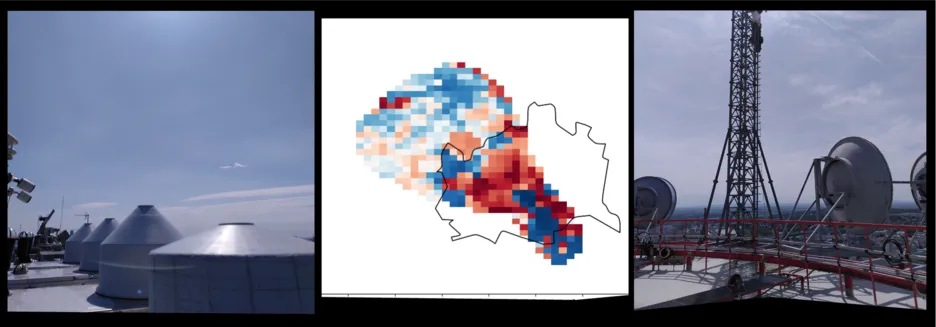VUCL (Vienna Urban Carbon Laboratory)

Project description
The VUCL will test the latest measurement-based emissions monitoring methods to address a pressing scientific research question with practical and political implications – Can Vienna’s greenhouse gas (GHG) emissions be adequately measured? The need for climate action in cities is critical. Systems that quantify local GHG emissions to evaluate mitigation measures are thus growing in importance and will undergo increasing levels of scrutiny. Measurement-based systems offer enormous potential; however, there is still substantial research required before they can be established within routine monitoring systems which currently rely on emission inventories. The VUCL thus proposes a number of cutting-edge scientific investigations, involving tall-tower eddy covariance measurements of net carbon dioxide (CO2) and methane (CH4) fluxes, CO2 isotope and isoflux measurements, as well as test campaigns with a differential column sensor network to measure upwind-downwind gradients in CO2 and CH4 mixing ratios.
The VUCL brings together the University of Natural Resources and Life Sciences Vienna (BOKU), the Technical University Munich (TUM), the Environment Agency Austria (EAA) and A1 Telekom Austria AG (A1) and aims to: advance science in the field of measurement-based GHG emissions estimates; showcase the latest measurement-based methods to city administrators; and lay the foundations for an adequate local monitoring system for quantifying total and sector specific emissions reductions.
The ESM-Team at TUM contributes with four Bruker FTIR EM27/SUN which are part of the MUCCNet high-precision sensor network in Munich. Further ESM research involves atmospheric transport modelling, both with Eulerian and Lagrangian models, as well as inverse modelling approaches to constrain the emissions of the city of Vienna. Based on a two month measurement campaign in Vienna in June and July 2022, we will estimate the emissions of Vienna within this period.
Project details
Project duration: 2021 - 2025
Funding: WWTF - Environmental Systems Research 2020 - Urban Regions - ESR20-030